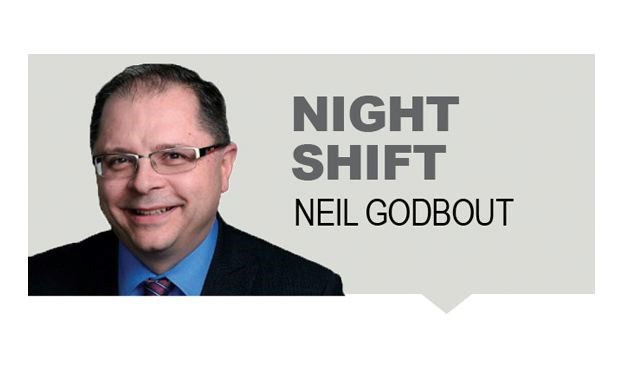Remember Columbia House?
In their introductory offer stuck inside so many magazines in the late 1970s and early 1980s, you could buy as many as 11 cassettes for just five bucks, with the promise that you'd buy five more over the next couple of years for about $13 dollars each.
Starting in 1981, I joined, fulfilled my requirement and then rejoined multiple times over the next four or five years.
It was such a thrill to receive that first shipment of 11 cassettes in the mail and listen to them all. Because I got so much music right out of the gate, I was willing to take a chance on some bands and one of them was Rush.
I knew Tom Sawyer from the radio and nothing else so I ordered Moving Pictures, 2112 and their live recording Exit Stage Left.
Those three albums changed my life because I went from a casual fan of songs to a music lover, someone who studied songs and bands, devoured liner notes and felt a connection to the people playing these great songs that moved me and inspired me so much.
I studied Rush the hardest in my early teen years and I obsessed over drummer Neil Peart, listening to his parts over and over. I had never heard rock music played quite like that before and I had never heard drums played that way. It sounded like there were three drummers playing all at once, not one single man keeping time behind the kit.
How did he do it? How did he develop those parts and then perform them live? And he wrote the band's lyrics, too!?! Who was this Canadian madman?
Countless times, my parents and younger sister found teenage me downstairs, air drumming to Limelight, Spirit of Radio, Xanadu, 2112 and other Rush classics, trying so hard to get the timing right with my hands and my feet, knowing I wasn't even close but feeling like I was.
It was the era of the Walkman, so I could isolate myself inside the music, lying in the dark in my room or walking to school, with Peart constantly reminding me time was not a constant but flexible, that drumming could be musical, not just merely percussive.
For many years, I always seemed to be in the wrong place at the wrong time, never getting a chance to see Rush live, to marvel at Peart's playing in person. Finally, in 2015, during the band's 40th anniversary tour, I saw them in Calgary (the same night Journey was playing CN Centre here in Prince George).
In his early 60s, he played like a man possessed, a magician wielding two wands, hands and feet moving independently of one another but forming a single percussive unit of time and sound, his face frozen in concentration.
Peart's back story, both as a man and a musician, fascinated me.
He brought fierce discipline to Rush, insisting to his bandmates Alex Lifeson on guitar and Geddy Lee on bass and vocals that they independently practice for a month on their own before getting together for final rehearsals before heading out on tour. A relentless perfectionist, he chose to retire after that 2015 tour because he knew he was at the end of his ability to physically play those demanding parts he crafted decades earlier.
He endured horrible personal tragedy, losing his 19-year-old daughter in a car accident in 1997 and his common-law wife to cancer just 10 months later. He hit the road on his motorcycle, putting nearly 100,000 kilometres on his bike in a quest to ride away from his grief, even reaching Inuvik at one point. He chronicled his travels and that long road to recovery in his book Ghost Rider.
I shed some tears for my musical idol on the news of his death Friday but ones of gratitude, not sadness. His words and music enriched my life in so many ways and for that, I am eternally thankful.
It all started with a geeky teenager, scraping together his allowance money to buy some cassettes through the mail.
That kid lives on in a middle-aged dad body, still trying to capture drum parts in the air and on the steering wheel, all because of Neil Peart.



